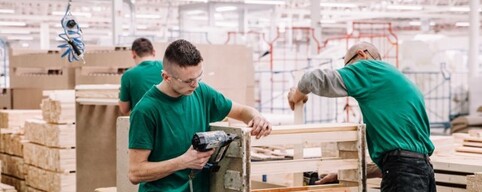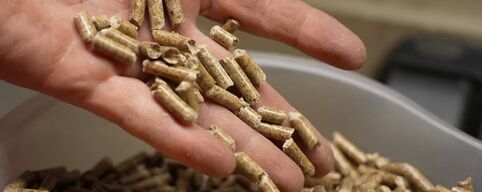

Belarus is making significant headway in the production of wood biofuel, particularly in the form of pellets, with 19 production facilities generating about 130,000 tonnes last year, as shared by Alexander Kruchanov, Deputy Minister of Forestry. As the world increasingly shifts towards sustainable energy practices, Belarus aims to capitalize on this trend by enhancing its wood biofuel production capacity. This movement is fueled by a combination of environmental benefits, economic potential, and a commitment to sustainable energy sources.
The environmental benefits of wood pellets are a driving force behind Belarus's emphasis on wood biofuel production. Pellets are made from waste wood, a renewable resource, making them an environmentally friendly alternative to more harmful fuels such as coal, gas, oil, and firewood. By replacing these polluting energy sources with pellets, Belarus is contributing to a reduction in carbon emissions and promoting cleaner air and a healthier environment.
From an economic standpoint, the global market for wood pellets presents a lucrative opportunity. Europe, in particular, has adopted wood pellets as a significant component of its industrial energy mix. This demand signals a robust market potential for Belarusian pellets in both European and Asian markets, where biofuel adoption is on the rise. Meeting this demand could spur economic growth within the country by increasing export revenues and creating jobs within the growing biofuel industry.
Lastly, the global trend towards reducing carbon footprints and utilizing sustainable energy sources aligns well with Belarus's wood biofuel initiatives. As government policies and societal preferences increasingly favor green energy solutions, the production and use of wood pellets play a crucial role in transitioning away from fossil fuels, positioning Belarus as a forward-thinking contributor to sustainable energy.
Belarus has strategically set up 64 diverse pellet production facilities, amplifying its ability to satisfy both domestic and international pellet demand. These facilities range in scale from small to large, with a few having the capacity to produce over 100,000 tonnes annually. This diversity provides Belarus with the flexibility and scalability necessary to adjust to market demands and fluctuations, making it a versatile player in the global pellet market.
Government involvement is critical, as nearly one-third of these production facilities are either directly or indirectly associated with the Forestry Ministry. This reflects a strong government commitment to growing the biofuel sector, underscoring national support for expanding and innovating within this space. Institutional backing ensures that the biofuel industry in Belarus remains sustainable and compatible with international standards, which is crucial for export potential.
Additionally, understanding the cost factors of pellet production is essential to driving adoption and investment. Analyzing the cost per tonne of pellets can help identify competitive pricing strategies and optimize production processes. Efficient cost management ensures that Belarusian pellets remain attractive in the global market while providing affordable, sustainable energy solutions domestically.
With a portion of the production already targeted for international markets, the potential for export is another economic advantage. This not only opens up new revenue streams for Belarus but also strengthens its trade relationships, contributing to economic diversification and resilience.
In conclusion, Belarus's emphasis on wood biofuel production presents a multidimensional strategy that intertwines environmental sustainability, economic growth, and alignment with global energy trends. The continued development and expansion of the pellet industry signify a promising future where Belarus can reduce its reliance on traditional, polluting energy sources, foster local economic development, and deliver tangible environmental benefits. This holistic approach positions Belarus as a pivotal player in the global move towards sustainable energy solutions.



